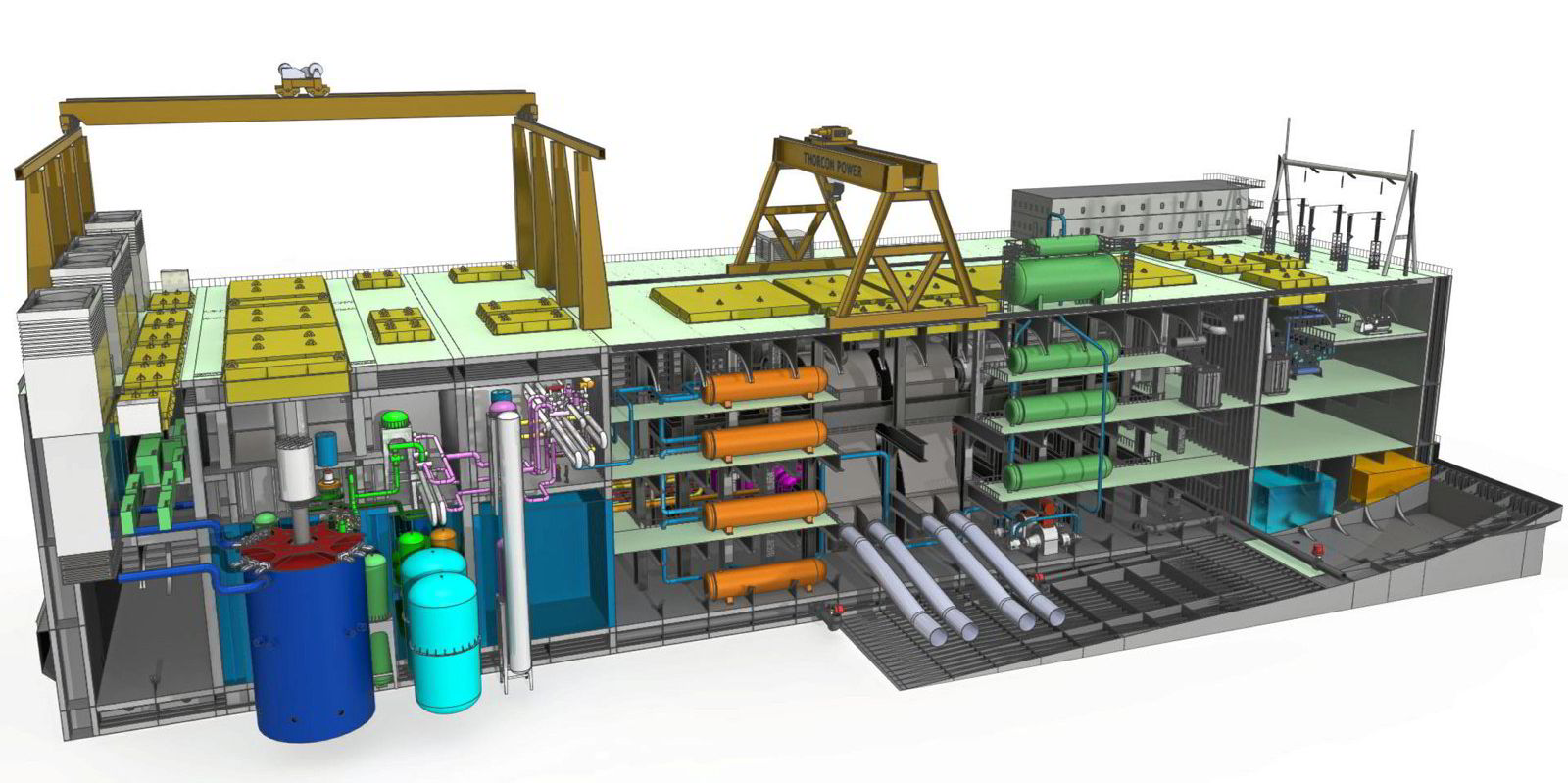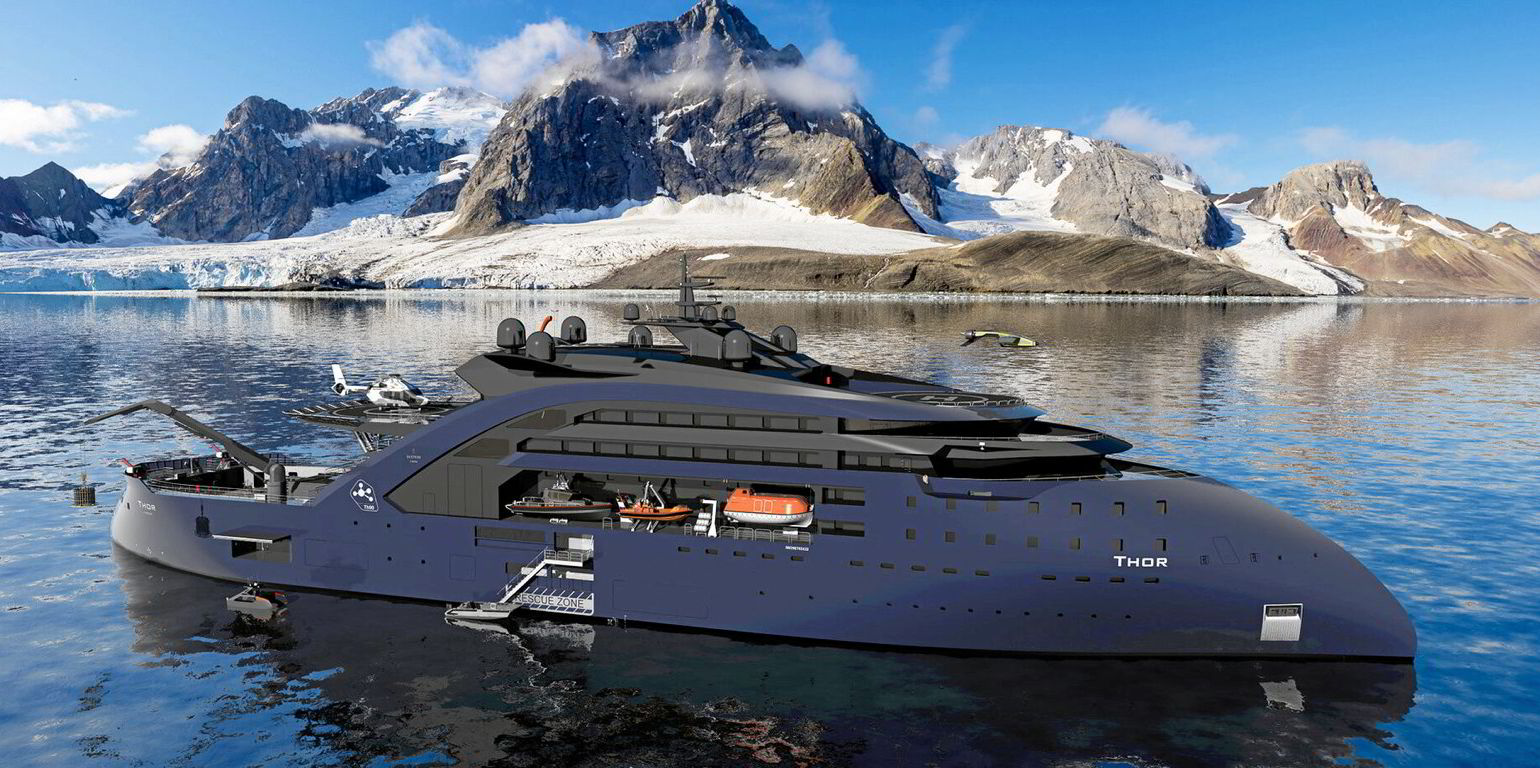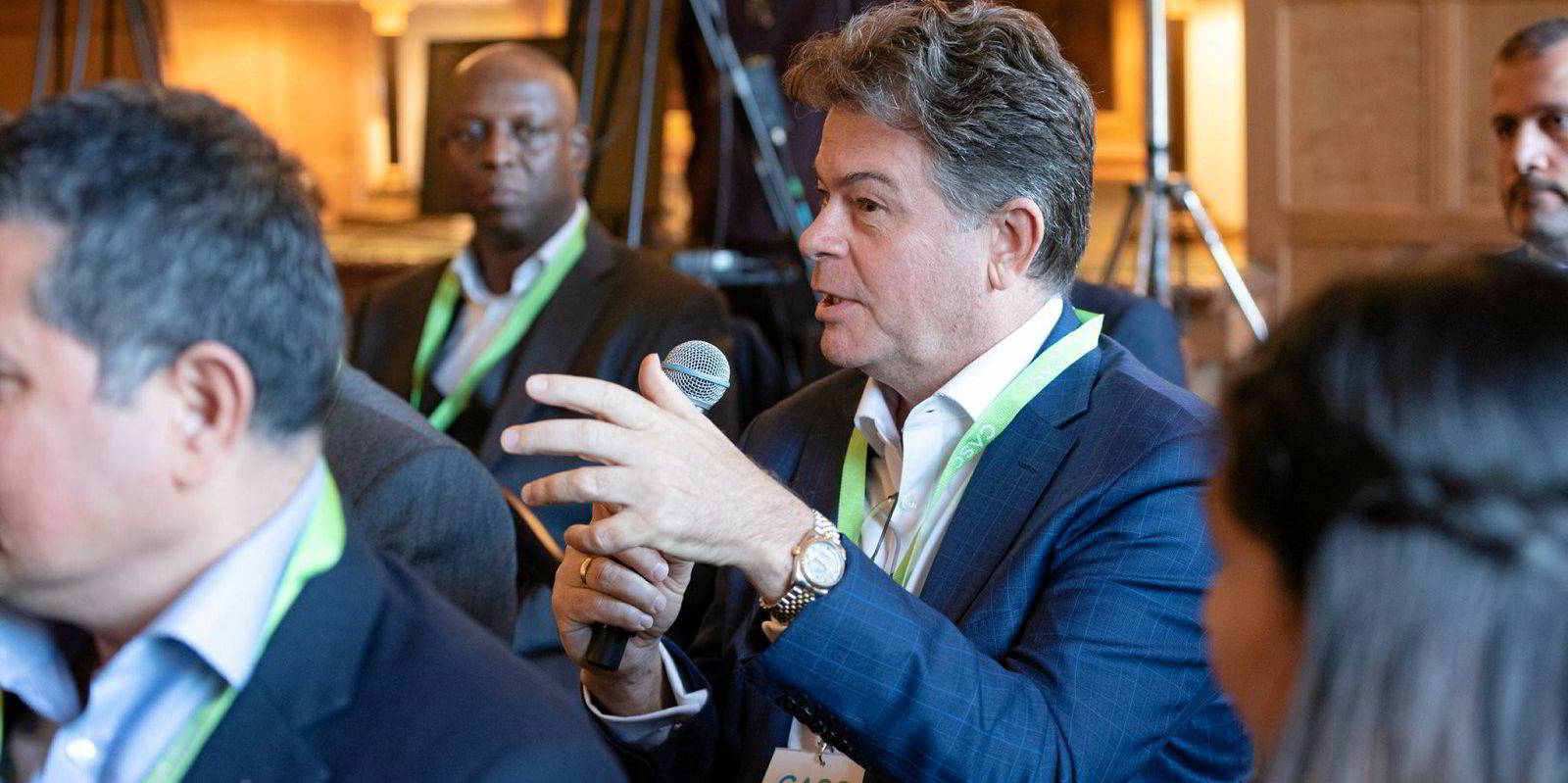Bureau Veritas has entered an agreement with nuclear power technology developer ThorCon to develop a 500-MW nuclear power barge for operation in Indonesia.
The first step will be to provide technology qualification for Thorcon’s molten salt fission reactor and hull unit, which, unlike traditional nuclear reactors, operates at low pressure and uses liquid fuel.
The power plant would be integrated within a floating barge hull and towed to a shallow-water site before being ballasted to rest on the seabed.
It would then deliver carbon-free energy to the power grid, the two groups said.
US-based ThorCon said the plants are designed to be mass-produced at shipyards to keep costs low. The design is based on the small molten salt reactor experiments of the 1960s.
Liquid fuels enable the reactors to operate at much higher temperatures, leading to greater efficiency. They also enable passive safety, as lower pressures mean an accident is less likely to disperse radioactive material, according to the company.
However, some safety concerns remain over environmental impacts and nuclear proliferation.
A key area of Bureau Veritas’ work will be to identify applicable standards, codes and class rules, plus the development of new guidance.
The technology qualification process is expected to take at least three years. If successful, the deployment phase would require an additional two years.
ThorCon is in discussions with the Indonesian province of Bangka-Belitung, state electricity company PLN and nuclear regulator BAPETEN over potential sites for a demonstration and final installation of a 500-MW plant.
Laurent Leblanc, senior vice president, technical & operations, at Bureau Veritas Marine & Offshore, said nuclear power is increasingly seen as a potential means to help achieve decarbonisation.
“New technologies, such as molten salt reactors, open opportunities for the deployment of nuclear energy, power generation in the marine environment,” he said.
ThorCon chief executive Dave Devanney said its fourth-generation advanced design solves cost issues with reactors.
It is initially implementing the technology in South East Asia because “the need for low-cost dispatchable carbon-free energy is urgent”, he added.





